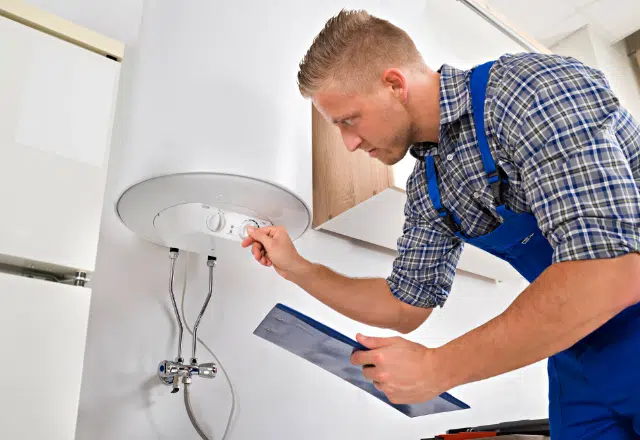
Water heaters are an essential component of modern homes, providing hot water for showers, washing dishes, and other daily needs. However, like any appliance, water heaters have a lifespan, and there comes a time when replacement is necessary. Understanding the signs that it’s time for a new water heater and knowing the best practices for installation can help homeowners make informed decisions. This comprehensive guide covers everything from recognizing when it’s time for a new heater to choosing the right type and navigating the installation process.
Local Repair Services: If you’re experiencing issues with your water heater, consider contacting local repairman services or technicians near you for emergency maintenance or repairs.
Replacing your water heater is a significant home improvement project that can improve your daily life and reduce your utility bills. Whether you opt for a traditional tank-style heater, a tankless model, or an eco-friendly option like solar heaters, understanding the signs of a failing unit, choosing the right replacement, and following proper installation procedures are key to a successful update. With these tips in mind, you can make an informed decision and enjoy the benefits of a new, efficient water heater in your home.
Specialist Advice: For complex water heater issues or installations, consider consulting a water heater specialist or technician who can provide expert guidance tailored to your specific needs.
Question: What are the primary differences between tankless and traditional tank water heaters, and how do they impact my choice?
Answer: The main difference between these two types of water heaters lies in their operation and size. Tankless water heaters provide hot water on demand without storing it, making them more energy-efficient and space-saving. In contrast, traditional tank units store and continuously heat water in a large tank, which can lead to more energy usage. Your choice depends on your household’s hot water needs, available space, and energy efficiency preferences. Tankless models are ideal for homes with high hot water demands and limited space, whereas traditional tanks are often more cost-effective and easier to install.
Question: How does the fuel source (natural gas, electricity, etc.) affect the performance and installation of a water heater?
Answer: The fuel source significantly impacts the heater’s efficiency, operating costs, and installation requirements. Natural gas water heaters typically heat water faster and are more cost-effective in terms of energy consumption, but they require gas lines and proper venting. Electric units are easier to install as they don’t require venting and are generally more energy-efficient but may have higher energy costs depending on local electricity rates. The choice of fuel source should align with your access to utilities, budget for ongoing energy costs, and installation feasibility.
Question: What is the average cost of installing a new water heater, and what factors influence this cost?
Answer: The average cost of water heater installation varies widely based on the type of heater, complexity of the installation, and regional labor costs. For tankless water heater installations, the cost is generally higher due to the need for modifications in plumbing and, in some cases, electrical systems. Factors influencing the cost include the type of unit (tankless vs. traditional), the fuel source (gas vs. electric), the need for new water lines or gas lines, and any additional labor required for complex installations.
Question: When replacing a water heater, how important is it to consider the water temperature regulation features of the new unit?
Answer: It’s very important. Efficient water temperature regulation in a new unit can significantly improve energy efficiency and user comfort. Advanced models offer precise temperature control, ensuring consistent hot water supply without excessive energy consumption. This feature is particularly important in electric heaters and tankless models, where temperature control directly influences performance and energy usage.
Question: For water heater replacements, is it more cost-effective to switch from a traditional tank unit to a tankless model?
Answer: Switching from a traditional tank unit to a tankless model can be cost-effective in the long run, especially if your household has high hot water usage. While the upfront installation cost of a tankless water heater is higher, they are more energy-efficient, leading to lower monthly energy bills. Additionally, tankless units typically have a longer lifespan than traditional tank heaters. However, the cost-effectiveness also depends on your household’s hot water usage patterns, the availability of fuel sources, and the initial installation requirements.
Wall-Mounted Options: For those with limited space, consider wall-mounted tankless water heaters as a space-saving solution for your home.
I bring over 9 years of dedicated plumbing experience to the table. As a seasoned professional in the plumbing industry, I've tackled a wide range of projects, from residential repairs to large-scale commercial installations.

